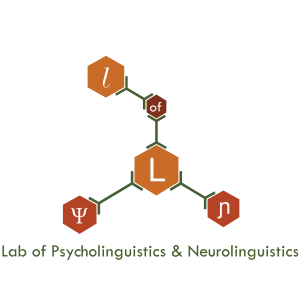Menu

Στο πλαίσιο των ομιλιών του Εργαστηρίου Ψυχογλωσσολογίας & Νευρογλωσσολογίας του Τμήματος Φιλολογίας, η Ιάνθης Μ. Τσιμπλή (University of Cambridge) θα δώσει ομιλία με τίτλο:
Linguistic diversity and multilingualism in the classroom: Literacy and cognition in underprivileged primary school children in India
Η ομιλία θα πραγματοποιηθεί την Πέμπτη 20/1/2022, 18:30 διαδικτυακά μέσω Webex από τον παρακάτω σύνδεσμο:
https://uoa.webex.com/uoa/j.php?MTID=mc11291886bc52acd2327084beb099986
Much research in multilingualism and its effects on cognition and language ability has focused on individuals in western societies. Socioeconomic status, language of education and language prestige have been identified as some of the factors that appear to influence bi/multilingual individuals’ linguistic and cognitive profile although most research on the role of bilingualism on cognition has not capitalized on such factors. I will focus on multilingualism in India, one of the most linguistically diverse countries in the world (UNESCO, 2009). Linguistic variation across Indian speakers is vast and includes variation in the number of home languages used, societal/community languages, official medium of instruction in schools and actual language practices in the classroom. As language is the primary vehicle of education and learning, variation in any of the above measures of multilingualism can affect the language experience of the school child and have knock-on effects on the development of school skills (basic and higher literacy and numeracy), or cognition. Focusing on the data from 1200 children from urban primary schools in Delhi and Hyderabad and from rural areas in Patna, all from deprived or severely deprived socioeconomic backgrounds, I will try to disentangle how language experience and linguistic diversity in the child’s immediate environment (school, family, community) affect school skills and cognitive abilities. Participants attend government primary schools in slum vs. non-slum urban areas of Delhi and Hyderabad, or town vs. rural areas in Patna, as part of a four-year, large-scale research project (MultiLila). They were assessed on mathematical reasoning, word, sentence and text reading, as well as non-verbal IQ, inhibition and complex working memory skills. Children attend English-medium or regional language medium schools (Hindi or Telugu), meaning that their assessment, textbooks and language used in the classroom is the official medium of instruction. Although the language of textbooks and assessment match the official medium of instruction, language practices in the classroom include language mixing with English-only input ranging from zero to 40%, in English-medium schools. Taking into account the child’s home language(s) and the extent to which they are used in the classroom I will present the participants’ performance on linguistic, reasoning and cognitive skills. Results indicate a significant effect of multilingualism and linguistic diversity in the cognitive and school skills of children from underprivileged socioeconomic background.